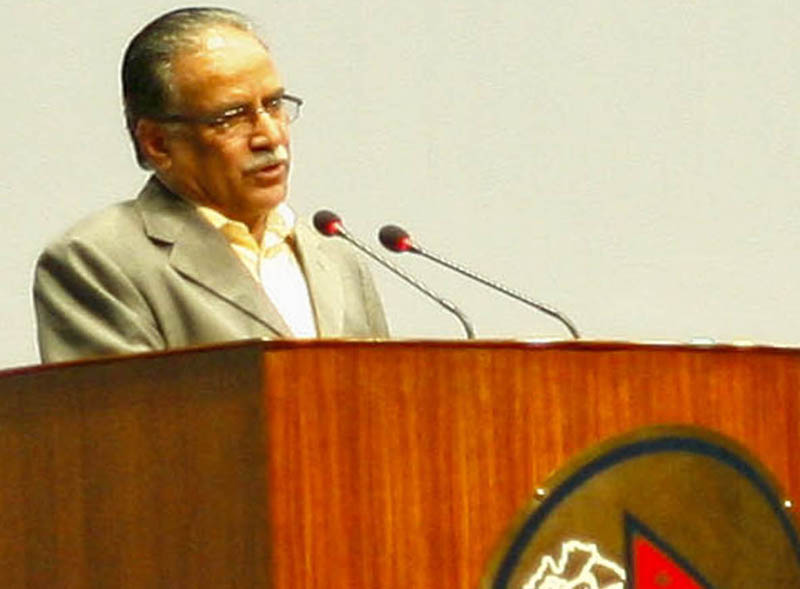Contempt of court case seeks imprisonment for Dahal
KATHMANDU: A contempt of court case has been filed at the Supreme Court against the UCPN-Maoist chairman and former prime minister, Pushpa Kamal Dahal, seeking one year imprisonment.
Advocate Dinesh Tripathi filed the case at the apex court today, arguing that Dahal's recent public statements that criticised the judiciary for issuing verdicts on the conflict-era cases were tantamount to the contempt of court.
The former rebel leader, who succeeded in becoming the country's prime minister after joining the mainstream politics, had reportedly accused the judiciary of grave conspiracy against the peace process. According to him, it was issuing verdicts on the conflict-era cases though they fell under the jurisdiction of Truth and Reconciliation Commission. We [Dahal and the Maoist party] would not accept such verdicts, Dahal had reportedly said.
In his petition, Tripathi referred to news articles published in two national dailies as evidence for Dahal's contemptuous remarks.
He demanded that Dahal be immediately summoned to the apex court to record his statement.
Tripathi sought the maximum punishment of Rs 10,000 fine and one year in jail against Dahal as per the Supreme Court Act -1991 as the latter was the chief of a political party that is currently in the government.
The Section 7 of the Supreme Court Act deals with the contempt of court.
Section 7: Contempt of Supreme Court and Subordinate Courts
(1) Supreme Court may impose punishment up to one year imprisonment or fine up to ten thousand rupees or both to the person convicted, in case wherein the Supreme Court has initiated the proceeding of its own contempt or contempt of subordinate courts or judicial authorities
(2) Notwithstanding anything contained in Sub-Section (1), if the accused or convict apologize to the satisfaction of the court, the Supreme Court may pardon or excuse, remit the punishment imposed or may suspend the punishment with conditions determined by the Court and if the conditions as are fulfilled the court may order not to execute the penalty






